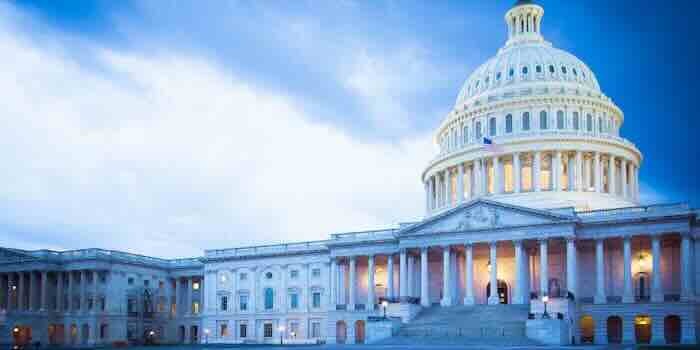By Liberty Counsel ——Bio and Archives--February 6, 2024
American Politics, News | CFP Comments | Reader Friendly | Subscribe | Email Us

WASHINGTON D.C. – Liberty Counsel filed an amicus brief to the U.S. Supreme Court in Fischer v. United States, a case where three January 6 defendants are appealing the government’s use of an evidence destruction law to criminally charge them for entering the U.S. Capitol to exercise their First Amendment rights to assemble, speak, and petition.
In December 2023, the High Court granted the petition of Joseph Wayne Fischer, Edward Lang, and Garret Miller, who have been charged with “corruptly” obstructing an official proceeding, namely the joint session of Congress that was convened on January 6, 2021, to certify the 2020 election. The defendants say they briefly entered the U.S Capitol Building after Congress had recessed.
In this case, Fischer contends the federal government is overreaching by charging them under the 2002 Sarbanes-Oxley Act, a law that grew out of the collapse of the Enron Corporation and is designed to prevent the fraudulent destruction of corporate financial records. Specifically, Section 1512(c) of the law makes it a felony to corruptly alter, destroy, mutilate, or conceal a record, document, or other object with the intent to undermine an official proceeding. A second part of the statute also applies to anyone who “otherwise obstructs, influences, or impedes any official proceeding.” The law authorizes up to a 20-year prison sentence for violators.
The defendants argue this law should not apply in their situation as they did not engage in a similar manner to those at Enron. Currently, the Justice Department has charged nearly 330 individuals, including President Donald Trump, under this law for obstruction of Congress.
In March 2022, a U.S. District Judge dismissed the Section 1512(c) charge against Fischer reasoning the law was only intended to narrowly apply to evidence tampering that leads to an obstruction of an official proceeding. However, in April 2023, the U.S. Court of Appeals for the District of Columbia Circuit ruled 2-1 to reverse that decision and reinstate the charge against Fischer, Lang, and Miller, whose cases had been combined. The Appeals Court stated that “under the most natural reading” of the second part of the statute, the law “applies to all forms of corrupt obstruction of an official proceeding.”
Countering that argument in a dissenting opinion, Judge Gregory Katsas stated the Justice Department’s “all-encompassing” interpretation of the law would make it both “improbably broad and unconstitutional in many of its applications.”
In the amicus brief, Liberty Counsel argues that using a “document-shredding prohibition” such as Section 1512(c) in this manner “criminalizes large swaths of constitutionally protected expression” and runs “roughshod over the First Amendment.”
The brief stated the reason for the unprecedented application of Section 1512(c) was due to “prosecutors running amok” because they detested the “speech, assembly, and expression” of the people who aimed to influence their elected representatives on January 6.
Quoting Judge Katsas’ Appeals Court dissent, the brief notes that Section 1512(c) “has been on the books for two decades and charged in thousands of cases—yet until the prosecutions arising from [January 6th], it was uniformly treated as an evidence-impairment crime.” Noting another dissenting judge in a separate January 6 case, “it is “doubt[ful] whether, in enacting Section 1512(c), that Congress intended to supercharge a range of minor advocacy, lobbying, and protest offenses into 20-year felonies.”
As Liberty Counsel explains in the brief, other recent “expressive activities” that have disrupted official proceedings were not prosecuted under Section 1512(c). For instance, the individuals who violently assaulted the Hatfield Federal Courthouse in Portland, Oregon; the person who unlawfully disrupted Justice Bret Kavanaugh’s Senate confirmation hearing; and the anti-Israel protestors who stormed the rotunda of the Cannon House Office Building – all of which resulted in injuries to police officers or proceeding attendees – resulted in lesser charges including disorderly conduct or unlawful protesting.
Support Canada Free Press

The brief asked, “…did the United States trot out Section 1512(c) to prosecute these violent protestors that ‘stormed the Capital’ in the same manner as the numerous January 6 defendants are alleged to have done?”
“No,” continued Liberty Counsel. “Yet, the United States dusted off this document-shredding prohibition to supercharge the minor offenses of some and the constitutionally protected expression of others into felonies subject to 20 years’ imprisonment. In no other instance, including a host of recent examples of similar expressive activities disrupting official proceedings, has the United States wielded the sword of Section 1512(c) to impose such drastic penalties.”
The brief concluded stating the Circuit Court’s “untethered interpretation” of this law and the Justice Department’s “selective prosecution” of January 6 defendants under it “runs afoul” of the U.S. Constitution.
“It criminalizes [the] fundamental First Amendment freedoms to speech, assembly, and petition,” stated Liberty Counsel. “[I]t leaves men guessing whether their constitutionally protected expression will subject them to felony prosecution and 20 years’ imprisonment. The Circuit Court’s interpretation of Section 1512(c) simply cannot stand. This Court should reverse and hold that Section 1512(c) does not apply beyond its intended document-shredding purpose.”
Liberty Counsel Founder and Chairman Mat Staver said, “The Sarbanes-Oxley Act arose out of the Enron scandal and was intended to prevent document shredding for the purpose of concealing corporate fraud. This law has nothing to do with the events of January 6. The federal government apparently chose not to use other applicable laws against those who committed unlawful acts because the penalties contained in applicable laws were not as severe. The First Amendment does not permit the government to make political expression, assembly, or petitioning the government into criminal acts.”
View Comments
Liberty Counsel is an international nonprofit, litigation, education, and policy organization dedicated to advancing religious freedom, the sanctity of life, and the family since 1989, by providing pro bono assistance and representation on these and related topics.